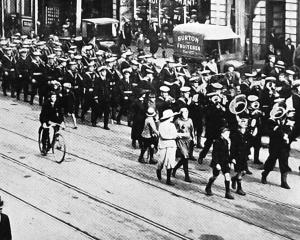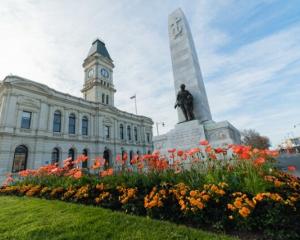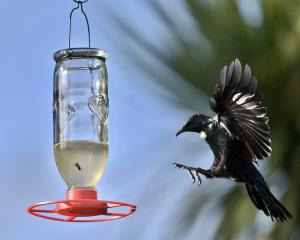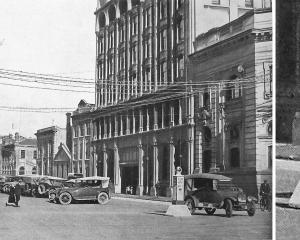
And so on a frosty Wednesday morning this week Act New Zealand list MPs Todd Stephenson and Mark Cameron were out and about in Waikouaiti on the latest stop in Queenstown-based Mr Stephenson’s southern recess tour.
Specifically, they were in the centre of town for a guided tour of the Waikouaiti Museum and a slice of what might just be the province’s finest carrot cake ... there are strict rules prohibiting election candidates from treating voters, but if there weren’t that cake in itself would be quite the vote getter.

In an election where about 2.8 million votes are cast, Act New Zealand picking up a few extra party votes in Waikouaiti is hardly going to change the result.
But a few short years ago Act’s caucus comprised party leader David Seymour, and that was it, off a 1% party vote. From then to now he, and subsequently the nine MPs he brought in with him in the 2020 election, have been touring seemingly non-stop, visiting places that MPs seldom get to — like Waikouaiti — spreading the party’s message.
When it comes to grassroots retail politics, Act are just about the best exponents of it, and the results are manifest. Act’s caucus is now 11 strong, the party holds five ministerial warrants and one MP is a parliamentary under-secretary.
But therein lies the dilemma that Act now faces. Its strongest asset, by far, is Mr Seymour but now, even less so than he could be when in Opposition, he cannot be everywhere at once.
Nor can his capable deputy Brooke van Velden or high-profile MPs like Nicole McKee (who campaigned in Dunedin last year) or Karen Chhour (who managed to make it to town last month).
Backbench MPs like Mr Cameron and Mr Stephenson are expected, and obliged, to get out and about as much as they can because their senior colleagues simply cannot be.
It is not being unkind to say that they are not the drawcard that Mr Seymour is, but earning a few votes here and a few votes there has been a working formula for Act so far and it sees no need to change it now that it is in government.
Mr Cameron, a Northland farmer, was far from home and far from warm, but as his party’s agriculture spokesman from 2020-23 he did his fair share of shearing shed meetings in the South and elsewhere.
He was starting from ground zero — Act then was a largely urban party founded by someone who caused massive economic upheaval for farmers in the 1980s, and its leader made no pretensions about being "a latte guy from Remuera".
But Act’s vote in rural New Zealand has burgeoned. To take Mr Stephenson’s electorate as an example, in 2017 when it was called Clutha-Southland, Act got just 141 party votes out of 37,154 votes cast.
In 2020 it was 5016, and last year Act received 5412.
Even accounting for other, wider political factors, Act has not only grown a voter base, it has retained them. And even if it does have the backstop of electorate seats to fall back on these days, it has sailed close enough to the wind of the 5% threshold in the past not to put the time and effort in to keeping those people engaged with the party.
Hence Mr Stephenson and co popping up in Queenstown, Arrowtown, Alexandra, Roxburgh, Dunedin and Waikouaiti this week, and all points between.
Also, as Mr Cameron says, the only way for MPs to stay in touch with the people paying their wages — the voters — is to get out and meet them.
And quite where that might take you, who knows.
Woolly thinking
New Zealand First Taieri list MP Mark Patterson — aka the "minister for wool" — has turned into quite the evangelist for the sheepy substance, as anyone who has followed his recent contributions in the House can testify.
However, it was a different country’s Parliament which has got Mr Patterson excited this week ... specifically India, which has imported 20,000kg of New Zealand wool — including southern fleeces — and woven them into carpets for their Parliament house.
"Clearly the Indian government recognises the unparalleled quality on New Zealand wool," Mr Patterson crowed, or should that be bleated?
"Now for the New Zealand government to follow suit in our government buildings, as per the New Zealand First/National Coalition agreement."











